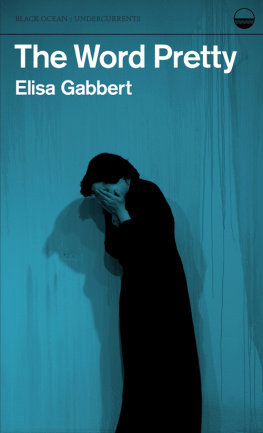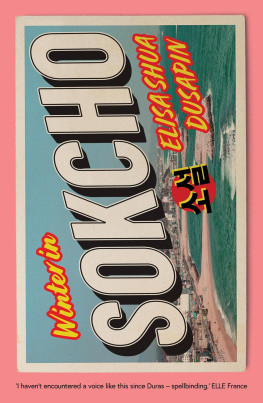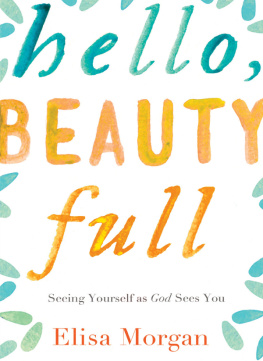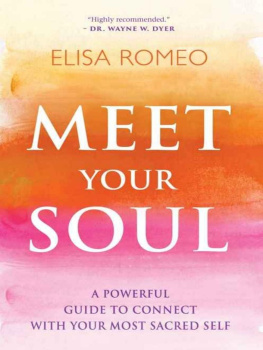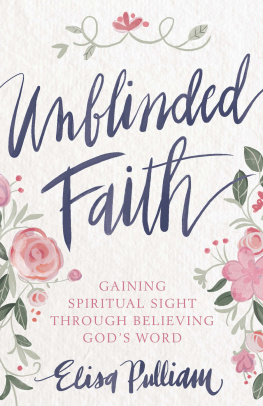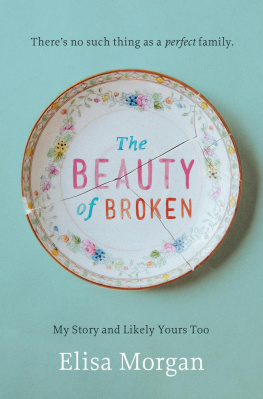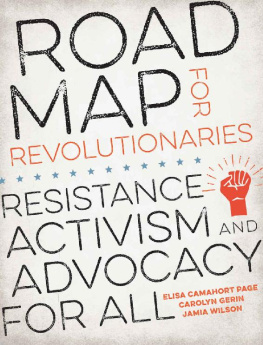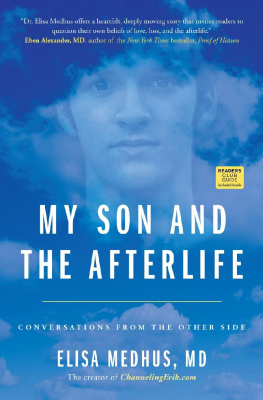Elisa Gabbert - The Word Pretty
Here you can read online Elisa Gabbert - The Word Pretty full text of the book (entire story) in english for free. Download pdf and epub, get meaning, cover and reviews about this ebook. year: 2018, publisher: Black Ocean, genre: Detective and thriller. Description of the work, (preface) as well as reviews are available. Best literature library LitArk.com created for fans of good reading and offers a wide selection of genres:
Romance novel
Science fiction
Adventure
Detective
Science
History
Home and family
Prose
Art
Politics
Computer
Non-fiction
Religion
Business
Children
Humor
Choose a favorite category and find really read worthwhile books. Enjoy immersion in the world of imagination, feel the emotions of the characters or learn something new for yourself, make an fascinating discovery.
- Book:The Word Pretty
- Author:
- Publisher:Black Ocean
- Genre:
- Year:2018
- Rating:4 / 5
- Favourites:Add to favourites
- Your mark:
- 80
- 1
- 2
- 3
- 4
- 5
The Word Pretty: summary, description and annotation
We offer to read an annotation, description, summary or preface (depends on what the author of the book "The Word Pretty" wrote himself). If you haven't found the necessary information about the book — write in the comments, we will try to find it.
Elisa Gabbert brings together humor and observational intelligence to create a roving and curious series of lyrical essays on writing, reading, and living. Combining elements of criticism, meditation, and personal essay, this book reveals a poets attention turned to subjects from translation to aphorism, from unreliable memory to beauty and the male gaze.
The Word Pretty — read online for free the complete book (whole text) full work
Below is the text of the book, divided by pages. System saving the place of the last page read, allows you to conveniently read the book "The Word Pretty" online for free, without having to search again every time where you left off. Put a bookmark, and you can go to the page where you finished reading at any time.
Font size:
Interval:
Bookmark:
Elisa Gabbert

2018 by Elisa Gabbert
All rights reserved.
To reprint, reproduce, or transmit electronically, or by recording all or part of this manuscript, beyond brief reviews or educational purposes, please send a written request to the publisher at:
Black Ocean
P.O. Box 52030
Boston, MA 02205
blackocean.org
Cover Design by Julian Montague | montagueprojects.com
Book Design by Nikkita Cohoon | nikkita.co
ISBN 978-1-939568-29-8
Library of Congress Control Number: 2018958608
FIRST EDITION
Notes on Keeping a Notebook
W RITERS habits dont just emerge, we cultivate themits first aspirational, then superstitious. Years ago, in graduate school, I noticed how certain poet friends would casually, but with intent, remove a small notebook from their jacket pocket or bag and jot something down. I noticed it the way you notice how someone smokesthe glamour in the gesture, and how it isnt personal but referential; it aligns one with a tradition. I started keeping notebooks so I could be a writer who keeps a notebook.
My notebooks are not diaries because they have no timestamps. Dating the entries would impose a structure, a sense of continuity and narrative, on the writing inside. They capture thoughts, not events; they are lyric notebooks. Id be having thoughts anyway, but now I write them downand knowing I might must alter the thoughts. Before I can write one, it has to become a sentence, an object with a shape. When I was seven or eight, I confessed to my mother that I couldnt stop narrating my life back to myself; I thought it meant I was crazy. No, she said, it means youre a writer. Ive since gotten used to it, that layer of language like running commentary between my direct experience and the external record of it.
R ECENTLY , feeling the urge to write but lacking any urgent material, I flipped through some old notebooks and found a page torn from one, tucked into another. It said, in blue pen:
Props
Check compact, put on lipstick
Play with glass
Sketch? Take notes?
Look at books
Crossword!
My eyes lit first on Play with glass. Play with glass? Oh yesmy wineglass. I do this at the dinner tableI twist the stem.
The list, of course, was from our play. Several years ago I helped put on a play, The Designated Mourner by Wallace Shawn. My husband John and I and our friend Aaron rehearsed it for a year, then performed it in our friends living rooms. Aarons character had a number of long monologues, addressed to the audience, during which I sat silently next to him, half-listening. This was a list of things I could do, as Judy (my character), while he was talkingminor distractions that would look plausibly natural and prevent me from appearing bored until my next cue. That exclamation point after Crossword is an A-ha !I felt Id hit upon the perfect prop, something intellectual but not too taxing, that I could either pay attention to or just pretend to, as the moment required.
There is very little else in the notebook. Its an odd one, with unlined pages and a distracting leafy pattern around the borders of each page. It has a design of bare white trees on the cover and says JOURNAL , unnecessarily, on the spine. I dont remember buying or receiving it. I like the trees but long for lines; my writing inside is unanchored, on the diagonal. Theres a short list of favorite words ( uncanny, inscrutable, chiffonade ), more notes for Judy: Show love first, then contempt. Judy can be too knowingmore fear. Again, on the next page, the word love in quotes, and Choose lovedont play the obvious emotion. (This was Aarons advice; I must have been playing her cold.)
Then, about ten pages of notes for an essay on Kate Zambrenos Heroines : The space between paragraphs introduces poetic space, synapses. (Part of a notebooks charm is its uneditedness, but I hope that tautological double space didnt make it into the published essay.) The rest95%of the notebook is blank. A synapse pushed to its logical extreme. Notebooks achieve so much of what poetry tries to achieve, but organicallythey begin and end arbitrarily, in medias res. Ready-made erasures with an offhand effortlessness, abstractions interspersed with specifics. Fragmentary profundity. No forced closures. The epiphanies fall where they may.
This was shelved over my desk next to a notebook that my boss brought back for me from Japan, with a cartoon geisha and a cat on the cover. Is it for children? Kawaii culture, which favors cuteness over beauty, makes it hard to say. Its ruled, but there are pale pink cherry blossoms scattered behind the lines, and at the top of each page, the letters S M T W T F S , urging me to diarize. If Ive ever written in it, those pages have been torn out and disposed of. The word that comes to mind is destroyeda cheap-looking notebook cheapens the thoughts inside. (Charles Simic once wrote, arguing against the use of phones for note-taking, If one has the urge to write down a complete thought, a handsome notebook gives it more class.) I rarely buy notebooks; they just turn up, gift-shop relics, and then I cant commit to them; they languish abandoned, mostly empty. I should invest in nice notebooks, strategically, so Ill use them more often.
I READ in a pop-science book called How We Learn that both hard problem-solving and creative projects work best when started as early as possible and interrupted as often as possible. Starting the project, even if youre just making notes, flips the brain into a kind of open mode, where everything seems to have relevance to your project; everything informs you. When youre in open mode, work happens even when youre not actively workingin fact, all evidence suggests that you do your best work when youre not trying. Maybe youve experienced this while working on a problemyou drive yourself nuts over it, finally give up, and then have your epiphany while playing a video game. In many ways the unconscious mind is smarter, and more creative, than the conscious one.
Even before I read it, I intuitively knew this to be true. When I sit around trying to think up good lines of poetry, they come out forced. But when my mind is wanderingwhile Im lying in bed, out for a walk, at a poetry readinggood lines just arrive, as if from another mind. This is when I need to have a notebook handy, to record those sudden-onset thoughts; theyre almost compulsive. Ill need them later, when its time to do the conscious, deliberate part of the work. Ill edit and collage them, curating my own thoughts. (Young writers, be warned: When you get older, your muse dies, then only shows up, poltergeist-like, for a few minutes at a time.) I have to act on them quicklynotes have a brief half-life, and in a matter of months, theyll have grown curious, mostly useless.
I DID buy the notebook I carry in my purse, a very small kelly-green Moleskine that has lasted me for two or three years. The first few pages are occupied by early versions of lines that ended up in a book of poems based on Judy. Most of them I remember scrawling during poetry readingsI now preemptively pull my notebook and pen out before a reading begins. One page has the name of a painting I saw at the Getty Museum in LA: Van Tromp, going about to please his Masters, Ships a Sea, getting a Good Wetting. (The painting did not strike me, only the title; the artists idiosyncratic capitalization is preserved.) Theres a poem I wrote straight out, in almost finished form, in the waiting area of an emergency roomone of those now-rare experiences, a full muse visitation. Two bizarre phrases in quotes I must have heard some poet say: echo-locative boudoir; touch-butter lettering. A question: How can art be bad? (I wonder this often, although I find most art to be bad.)
Font size:
Interval:
Bookmark:
Similar books «The Word Pretty»
Look at similar books to The Word Pretty. We have selected literature similar in name and meaning in the hope of providing readers with more options to find new, interesting, not yet read works.
Discussion, reviews of the book The Word Pretty and just readers' own opinions. Leave your comments, write what you think about the work, its meaning or the main characters. Specify what exactly you liked and what you didn't like, and why you think so.

